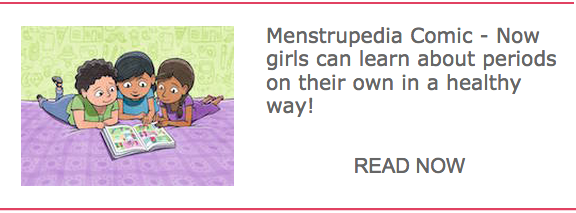The Society Encaged With Menstrual Taboo
I’ve been fighting against the taboo of menstruation ever since my mom enlightened and made me aware about the whole issue as a school going kid in the fifth grade. I remember disagreeing to most of her points, leaving her quite irritated and making me feel like I was a bad little girl.
I am from a South Indian, Tamil Brahmin Iyer community that boasts of almost 100% literacy and consists of largely well-to-do families; but the narrow-minded victimization of a menstruating girl remains just the same as any other community. I remember how one day, I was sitting in the washroom to find out that I had gotten my periods for the very first time and I was quite happy as my mom had told me that it meant that I was finally a grown up. A few days before that, I had heard that my cousin, just nineteen days younger than me, had cried inconsolably for getting her periods and till this date, I couldn’t understand why that had happened. Maybe it was because she was afraid of seeing blood or maybe it was because of society which unfortunately included our families, replete with many menstrual taboos which may have made her feel like she was a cold-blooded murderer accused for four days every single month. From that day in the washroom in the ninth grade, I knew that I had ventured into the world of ruthless practices, senseless and illogical thoughts about periods and that this fight to change people’s mentality towards a very natural process in life still had a long long way to go.
I must say that I was lucky enough to get all that I needed during my periods. Being the single child of my parents, I had access to every comfort and luxury a girl would need. So now, every time I raise the issue of this taboo, I am questioned by my mom who argues that when my parents have given me so much of comfort, why couldn’t I just follow some rules that everybody else did in society – what was wrong with me? Why was I a rebel? These questions started making me feel more depressed because it came with the realization that even my own people were completely drawn into the whirlpool of such thoughts.
I continued going into temples, wearing white clothes, sitting wherever I wanted to in my house, touching whatever I felt like, dancing in competitions during periods and talking about it openly to everyone. As I grew up, the women in my family realized that they couldn’t control me any further and now I have ultimate freedom but not without the constant fights and nagging that come along with such dissent. My mom would still wash all my clothes after those four days and cleared wherever I sat and I slept – that’s the only thing she could do I suppose. I say this to my family members every single time, that one day, you will like it too – being free as a woman should be and I hope that they will one day change to embrace this.
When I started going to college, I assumed that the topic of periods would be openly discussed. To my disbelief, it was a topic of ridicule. There were guys who cracked jokes about it and girls were as shy as ever to talk about it. Ever so inhumanly, these guys would crack dirty jokes and the insulted and ashamed girls would walk as fast as they could to be saved from such embarrassment. “What sick minded boys!” I thought.
But it was not about sexism, it is about women who also portrayed themselves as the weaker and accused sex. Right from the time it first began, I remember my dad, grandpa and uncles – none of them ever thought of me as a stranger in those four days. It was the women in my family who said that God would get angry or to not touch the pickles or to sit in a secluded place the whole day just because I was bleeding. They bound themselves inside a wall that the women fraternity seemed to have built themselves. I found a good male friend in college who later became my first friend there and the topic that brought me closer to him was menstruation. He was the one guy in our group who would understand the whole deal and we used to laugh together on the completely insane practice of an embarrassingly big function to make it known publicly that a girl had just gotten her periods for the first time. He further raised my confidence to speak about the issue and to create awareness about the truth.
The whole issue of sitting around doing nothing for four days and not working was created, bearing in mind the discomfort of women because of the pain and fatigue that they experienced during this time. They were just measures to take care of womenfolk and not to victimize them. Back in those days, there weren’t any sanitary napkins to feel perfectly comfortable with and the cloth pads they used couldn’t absorb much, which made it difficult to move or work too much. So the male members or other women in the house would cook instead. With regard to temples, if the creator gave us periods, why would he/she be upset with a woman for praying during their occurrence? If a man is hurt in a road accident and blood oozes out, doesn’t he pray to god to be saved? Is that not blood? Isn’t that dirty? Or is it that the part of our body from where the blood oozes out is all we are thinking about?
When men can go to temples three hundred and sixty-five days a year, irrespective of their faults, is menstruating a fault of ours for which we are barred from going into temples? This society needs bleeding women to create the world but they are still being shamed, insulted and embarrassed for the same pain that they goes through every month, almost as if they were criminals. This injustice won’t stop until women raise their voice and stop being victims for no fault of theirs.
I am sure that there are many women out there like me who want to join hands and fight against these illogical practices – to vent out all of their anger for a positive change that I know will someday save the generations of women who are yet to come.
 Author: Neha Aiyar
Author: Neha Aiyar
Neha Aiyar is a final year Chartered Accountancy student from Kalyan, Mumbai. Born on human rights day, she believes that “Where blind following stops, logical reasoning starts”.
Editor: Divya Rosaline
1


